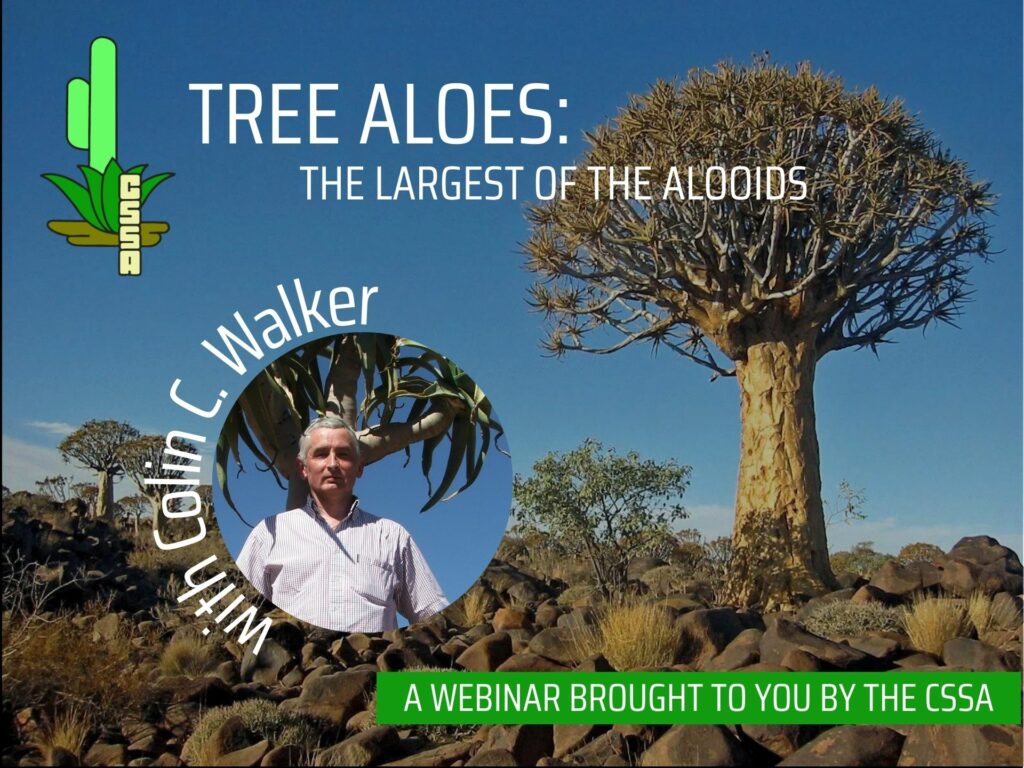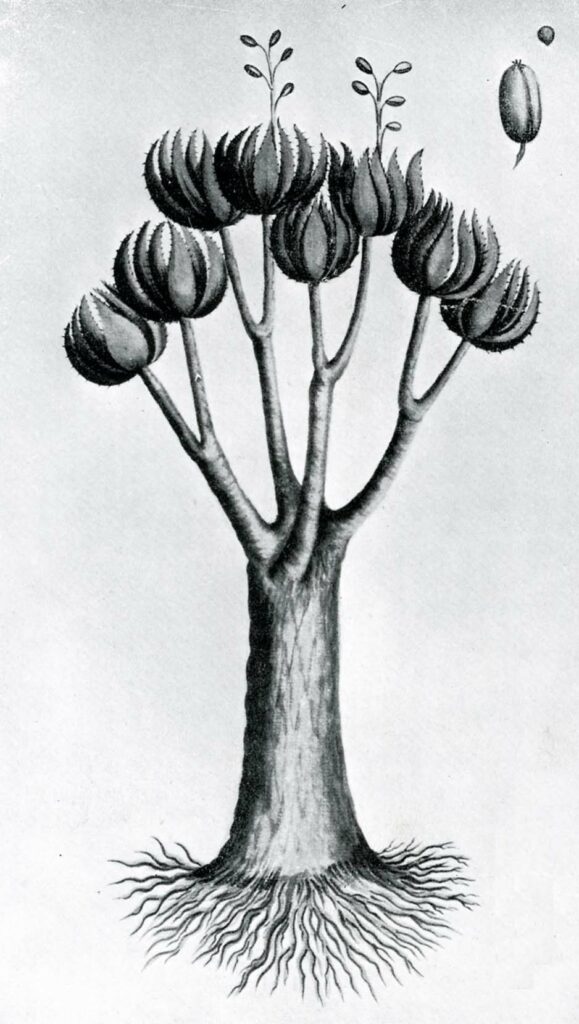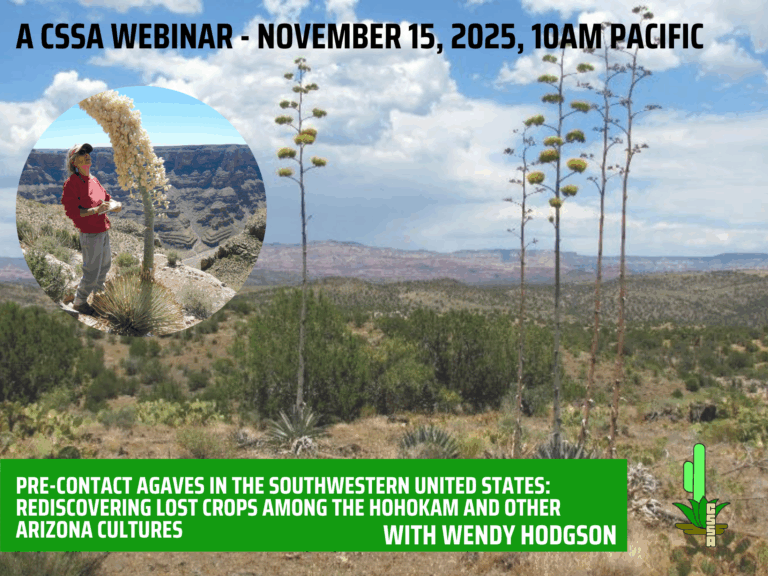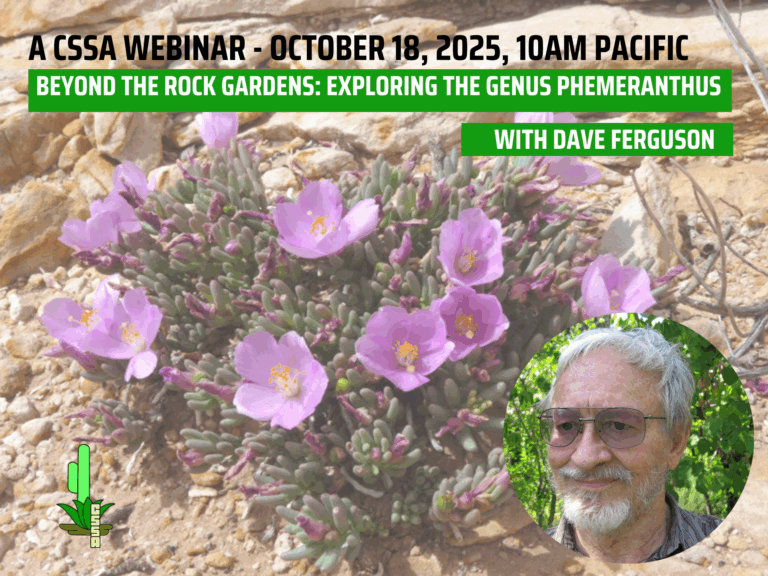
Never miss a webinar – add yourself to our mailing list
Date: May 18th, 2024
Time: 10AM Pacific Time (California)
View Webinar Here:
https://youtu.be/9aZgEPKpcgc

Tree Aloes with Colin C. Walker
Tree aloes are the biggest of the alooids with one species growing up to 60 feet tall. These plants all have well branched woody stems with dichotomous (forked) branching patterns and usually rough peeling bark. Characteristically, unlike many true aloes, the dead leaves are not persistent.
This presentation begins with the history, since some tree aloes were amongst the earliest aloes to be discovered and described. Until 2013, these were included within Aloe but then molecular evidence showed conclusively that the tree aloes diverged very early in the evolutionary history of these plants, recognized with the establishment of a separate genus, Aloidendron. This contains just six species, mostly from southern Africa, but with a single disjunct species, A. eminens, in Somalia. The species will be described in habitat and cultivation, including their main characteristics, distributions and conservation status. Notably one species, A. pillansii, is critically endangered in the wild.
About our Speaker
Colin C. Walker’s research has focussed on the biodiversity and taxonomy of succulents, notably aloes and agaves. In 2011 he was co-author of Aloes – The Definitive Guide with Susan Carter, John Lavranos, & Len Newton, published jointly by the Royal Botanic Gardens, Kew, and the British Cactus & Succulent Society (BCSS). He is currently working on the 2nd edition of The Illustrated Handbook of Succulent Plants published by Springer, for which he’s researching the daisy family (the Asteraceae).
Recording
In some cases, presenter’s allow us to leave the recorded webinar online for later viewing. The amount of time the recordings are available depends on what is allowed by the speakers.
Consider supporting these programs by becoming a member or contributing to our Webinar Fund.
CSSA Memberships start at only $20/year
Photo Credits: Colin C. Walker and Aloe Britannica




